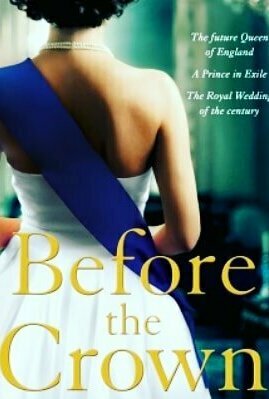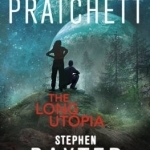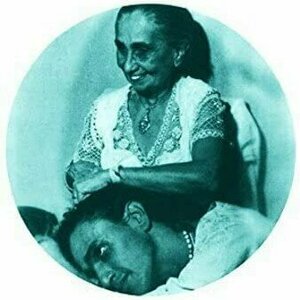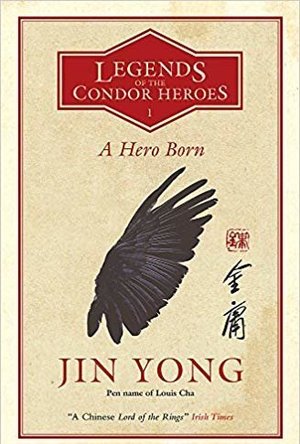Search
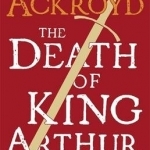
The Death of King Arthur: The Immortal Legend
Book
A gripping retelling of the timeless epic of romance, enchantment and adventure, Peter Ackroyd's The...
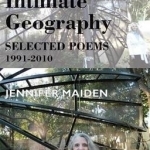
Intimate Geography: Selected Poems 1991-2010
Book
Jennifer Maiden's "Intimate Geography" charts territory both personal and political, private and...
Heather Cranmer (2721 KP) created a post
May 1, 2021
Lottie disney bookworm (1056 KP) rated Before the Crown in Books
Jun 14, 2020
Thank you to Netgalley and Flora Harding for giving me the opportunity to read an advanced copy of this novel in exchange for an honest review.
Before the Crown is a beautiful historical novel which delves deep into the romance between Princess Elizabeth and Prince Philip of Greece, perhaps better known as Queen Elizabeth II and the Duke of Edinburgh.
However, this is not a traditional romance and Harding does not hold back in laying out all the struggles Elizabeth and Philip faced. From the King and Queen's disapproval of the match for their daughter to the effects of public opinion on the relationship, Flora Harding covers it all.
Nor does this novel present the engagement as all hearts and flowers. Despite Elizabeth being attracted to Philip from a young age, this is initially a one-sided crush and a political arrangement for the couple. However, due to Flora Harding presenting her novel from the perspective of both Elizabeth and Philip, the reader is able to experience first hand the doubts, worries, longing and evolution of this infamous relationship.
I will be honest it is hard not to envision the Netflix series when you read this novel but it is by no means a copy cat situation. Harding provides such interesting insights into Philip's lifestyle and his family that it is hard not to pity the sacrifices that he makes in order to be with Elizabeth.
In 'The Crown' young Philip was a bit of a dirt bag and, although Harding's Prince is no angel, he is clearly fighting an uphill battle against the aristocracy's view of him. It is difficult not to sympathise.
I would have liked an author's note to know how much of the story is fact and how much is fiction or speculation. However, given the privacy of the Royal Family I imagine any factual insights are rare.
In summary, 'Before the Crown' is a captivating read, exploring the sacrifices and struggles where we often blindly see prejudice, all against the backdrop of WWII Europe.
Before the Crown is a beautiful historical novel which delves deep into the romance between Princess Elizabeth and Prince Philip of Greece, perhaps better known as Queen Elizabeth II and the Duke of Edinburgh.
However, this is not a traditional romance and Harding does not hold back in laying out all the struggles Elizabeth and Philip faced. From the King and Queen's disapproval of the match for their daughter to the effects of public opinion on the relationship, Flora Harding covers it all.
Nor does this novel present the engagement as all hearts and flowers. Despite Elizabeth being attracted to Philip from a young age, this is initially a one-sided crush and a political arrangement for the couple. However, due to Flora Harding presenting her novel from the perspective of both Elizabeth and Philip, the reader is able to experience first hand the doubts, worries, longing and evolution of this infamous relationship.
I will be honest it is hard not to envision the Netflix series when you read this novel but it is by no means a copy cat situation. Harding provides such interesting insights into Philip's lifestyle and his family that it is hard not to pity the sacrifices that he makes in order to be with Elizabeth.
In 'The Crown' young Philip was a bit of a dirt bag and, although Harding's Prince is no angel, he is clearly fighting an uphill battle against the aristocracy's view of him. It is difficult not to sympathise.
I would have liked an author's note to know how much of the story is fact and how much is fiction or speculation. However, given the privacy of the Royal Family I imagine any factual insights are rare.
In summary, 'Before the Crown' is a captivating read, exploring the sacrifices and struggles where we often blindly see prejudice, all against the backdrop of WWII Europe.
Hazel (1853 KP) rated Grave Mercy (His Fair Assassin, #1) in Books
Dec 7, 2018
<i>This eBook was provided by the publisher via NetGalley in exchange for an honest review</i>
<i>Grave Mercy</i> is the first book in Robin LaFevers’ trilogy <i>His Fair Assassin</i> set in Brittany in the middle ages. Young Ismae Rienne escapes from her new, abusive husband to the sanctuary of the convent of St. Mortain, where she learns that she was sired by the god of death. She, like the other sisters of the convent, has been blessed with certain gifts as a result. Their job is to be the handmaidens of death and help to kill people on behalf of St. Mortain.
Ismae’s task is to live in the high courts with a man named Gavriel Duval in order to remove the traitors that threaten the soon to be crowned duchess, Anne. While she is there she begins to suspect that one of the allies is a traitor, but whom? She also begins to fall in love and feels torn in two when the convent demands his death.
It takes a long time to understand what is going on in <i>Grave Mercy</i> especially as a lot of it involves politics of an era of long ago. Towards the end it begins to become more exciting once the reader has worked out who are the good characters and who are the bad and all that is left is to discover how it all resolves itself.
There is something about death and murder in historical fiction that is more gruesome than in contemporary novels. This is another reason why the book was difficult to read.
Initially the amount of names listed on the “Dramatis Personae” at the start of the book was a little daunting however not all of them are key to the plot. The main character, Ismae, is likable and her strength and independence is admirable especially as women did not have much control over their lives at that time. Most of the other characters also existed in real life as, although in part a fantasy novel, LaFevers’ has kept it as historically accurate as possible.
Looking at the reviews on <i>Goodreads</i>, over 900 readers have listed <i>Grave Mercy</i> as Young Adult. After reading the book there is nothing to suggest that it was written for that age group. Admittedly the characters are very young: Ismae, 17, and Anne, 12; but in the 1400s they would have seemed older than society regards people of that age today. The romantic element of the novel is the kind you would expect to find in adult historical novels rather than books for younger readers.
Overall this is a book for people who appreciate historical and political fiction but also like an element of fantasy and romance. It is written really well but to be able to engage fully with the story you need to be really interested in the subject matter.
<i>Grave Mercy</i> is the first book in Robin LaFevers’ trilogy <i>His Fair Assassin</i> set in Brittany in the middle ages. Young Ismae Rienne escapes from her new, abusive husband to the sanctuary of the convent of St. Mortain, where she learns that she was sired by the god of death. She, like the other sisters of the convent, has been blessed with certain gifts as a result. Their job is to be the handmaidens of death and help to kill people on behalf of St. Mortain.
Ismae’s task is to live in the high courts with a man named Gavriel Duval in order to remove the traitors that threaten the soon to be crowned duchess, Anne. While she is there she begins to suspect that one of the allies is a traitor, but whom? She also begins to fall in love and feels torn in two when the convent demands his death.
It takes a long time to understand what is going on in <i>Grave Mercy</i> especially as a lot of it involves politics of an era of long ago. Towards the end it begins to become more exciting once the reader has worked out who are the good characters and who are the bad and all that is left is to discover how it all resolves itself.
There is something about death and murder in historical fiction that is more gruesome than in contemporary novels. This is another reason why the book was difficult to read.
Initially the amount of names listed on the “Dramatis Personae” at the start of the book was a little daunting however not all of them are key to the plot. The main character, Ismae, is likable and her strength and independence is admirable especially as women did not have much control over their lives at that time. Most of the other characters also existed in real life as, although in part a fantasy novel, LaFevers’ has kept it as historically accurate as possible.
Looking at the reviews on <i>Goodreads</i>, over 900 readers have listed <i>Grave Mercy</i> as Young Adult. After reading the book there is nothing to suggest that it was written for that age group. Admittedly the characters are very young: Ismae, 17, and Anne, 12; but in the 1400s they would have seemed older than society regards people of that age today. The romantic element of the novel is the kind you would expect to find in adult historical novels rather than books for younger readers.
Overall this is a book for people who appreciate historical and political fiction but also like an element of fantasy and romance. It is written really well but to be able to engage fully with the story you need to be really interested in the subject matter.
Phil Leader (619 KP) rated The Long Utopia in Books
Nov 20, 2019
The Long Earth series of books presented an intriguing idea, that of being able to 'step' into parallel Earths, each an untouched wilderness and each one slightly different until they became very different planets. How would this affect people on a personal level and how would it affect the social and political stability of the original 'Datum Earth'?
The second book, The Long War explored the political theme further with the superpowers attempting to control the equivalent populations on the other Earths - and mostly meeting resistance to any governance at all. It also introduced the concept of the Next, a super intelligent sub-species of humanity.
The third book, The Long Mars had further incredible iterations of Earth on display and also did the same thing for Mars on a quest to discover a material to use to make a space elevator. The Next also started to organise and to separate themselves from the rest of humanity.
Each of these took the original concept and gave us more interesting worlds and lifeforms. Although the law of diminishing returns was starting to bite - Earth fatigue if you like - the main interest was in seeing what new ideas the authors could wrestle for each new Earth or Mars.
That is where this book fails. It is almost exclusively interested in only one copy of Earth, which comes under direct threat. All the usual suspects - Joshua, Sally, Lobsang and the Next must join forces to prevent a catastrophe threatening the whole Long Earth. There is also a sub-plot involving Joshua's antecedents which although interesting in itself is essentially a Long Earth short story of no relevance to the rest of the plot.
Whereas the previous books had a sense of wonder at each world, this loses that completely. It is in fact a completely standard science fiction story and probably would have been better told as a stand alone story rather than being shoe-horned into the Long Earth concept, which doesn't actually add anything interesting to it. It reads very much like Baxter wanted to write a story about a Dyson motor and as he was contracted to write a Long Earth novel, that's what was used. Unfortunately even this story is not well told with stilted and flaccid dialogue, zero character development and no dramatic tension at all. It was a real struggle to read in places, there is no zip or flow to the story or writing.
Various bits of the plot don't make a great deal of sense and the ending is very lame indeed with the chain of Long Earth worlds being essentially fixed by just thinking about it. The Next decide that Stan Berg, a newly discovered one of their kind, is the only one to 'fix' this despite basically no contact. They are supposed to be super intelligent and think many moves ahead but this just struck me as absurd.
Overall, I would only suggest that Long Earth completists read this. Those who enjoy the Long Earth for its diversity and novel concepts would be better off leaving this one on the shelf.
The second book, The Long War explored the political theme further with the superpowers attempting to control the equivalent populations on the other Earths - and mostly meeting resistance to any governance at all. It also introduced the concept of the Next, a super intelligent sub-species of humanity.
The third book, The Long Mars had further incredible iterations of Earth on display and also did the same thing for Mars on a quest to discover a material to use to make a space elevator. The Next also started to organise and to separate themselves from the rest of humanity.
Each of these took the original concept and gave us more interesting worlds and lifeforms. Although the law of diminishing returns was starting to bite - Earth fatigue if you like - the main interest was in seeing what new ideas the authors could wrestle for each new Earth or Mars.
That is where this book fails. It is almost exclusively interested in only one copy of Earth, which comes under direct threat. All the usual suspects - Joshua, Sally, Lobsang and the Next must join forces to prevent a catastrophe threatening the whole Long Earth. There is also a sub-plot involving Joshua's antecedents which although interesting in itself is essentially a Long Earth short story of no relevance to the rest of the plot.
Whereas the previous books had a sense of wonder at each world, this loses that completely. It is in fact a completely standard science fiction story and probably would have been better told as a stand alone story rather than being shoe-horned into the Long Earth concept, which doesn't actually add anything interesting to it. It reads very much like Baxter wanted to write a story about a Dyson motor and as he was contracted to write a Long Earth novel, that's what was used. Unfortunately even this story is not well told with stilted and flaccid dialogue, zero character development and no dramatic tension at all. It was a real struggle to read in places, there is no zip or flow to the story or writing.
Various bits of the plot don't make a great deal of sense and the ending is very lame indeed with the chain of Long Earth worlds being essentially fixed by just thinking about it. The Next decide that Stan Berg, a newly discovered one of their kind, is the only one to 'fix' this despite basically no contact. They are supposed to be super intelligent and think many moves ahead but this just struck me as absurd.
Overall, I would only suggest that Long Earth completists read this. Those who enjoy the Long Earth for its diversity and novel concepts would be better off leaving this one on the shelf.
David Byrne recommended Muito (Dentro Da Estrela Azulada) by Caetano Veloso in Music (curated)
Sensitivemuse (246 KP) rated A Hero Born in Books
Sep 25, 2019
Great plot but translation isn't so good
Despite what you read on the covers (e.g. “It’s like Lord of the Rings”) ignore all of that. It’s nothing like it. There is no epic adventure to fight evil (at least not yet - this is the first book in the series). So before you get all disappointed in what the outside quotes say, completely disregard them.
Translation will always be an issue with these kinds of books. It’s hard to keep it true and coherent. Sometimes you get a good one that is completely comprehensible and makes the reading a journey well worth it. Then you get one like A Hero Born and it’s not the greatest translation. The writing style is dry and hard to get into. Sometimes it gets too descriptive, but other times it’s not descriptive enough. It can be a little long winded at times and it drags - I’m not too sure if that’s because of the run on writing style or the plot itself. Either way by the last third of the book it was getting to be tiresome.
Speaking of the plot, it was good! There’s plenty of action, a bit of intrigue here and there. If you don’t mind something akin to Chinese historical fiction movies with classic martial arts fighting then perhaps this is for you. There are small elements of political intrigue which keeps the story interesting, however keep in mind there are a lot of characters to keep track of, but luckily there is a cast of characters in the beginning of the novel so that should not be a problem. This isn’t a book to put down and turn back to later, this needs to be consistently read you will easily lose your place.
There’s also several plot arcs that happen throughout the novel so it’s best to keep track of them carefully. They are all intertwined at some point. It’s a great plot and if it wasn’t for the horrible writing/translation.
I don’t know if I could recommend this one to anyone. I would under normal circumstances but the writing just do the plot justice. It’s too bad, it would have been such a great series.
Translation will always be an issue with these kinds of books. It’s hard to keep it true and coherent. Sometimes you get a good one that is completely comprehensible and makes the reading a journey well worth it. Then you get one like A Hero Born and it’s not the greatest translation. The writing style is dry and hard to get into. Sometimes it gets too descriptive, but other times it’s not descriptive enough. It can be a little long winded at times and it drags - I’m not too sure if that’s because of the run on writing style or the plot itself. Either way by the last third of the book it was getting to be tiresome.
Speaking of the plot, it was good! There’s plenty of action, a bit of intrigue here and there. If you don’t mind something akin to Chinese historical fiction movies with classic martial arts fighting then perhaps this is for you. There are small elements of political intrigue which keeps the story interesting, however keep in mind there are a lot of characters to keep track of, but luckily there is a cast of characters in the beginning of the novel so that should not be a problem. This isn’t a book to put down and turn back to later, this needs to be consistently read you will easily lose your place.
There’s also several plot arcs that happen throughout the novel so it’s best to keep track of them carefully. They are all intertwined at some point. It’s a great plot and if it wasn’t for the horrible writing/translation.
I don’t know if I could recommend this one to anyone. I would under normal circumstances but the writing just do the plot justice. It’s too bad, it would have been such a great series.
IT
Innocent Traitor
Book
I am now a condemned traitor . . . I am to die when I have hardly begun to live. Historical...
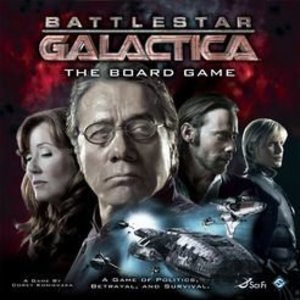
Battlestar Galactica: The Board Game
Tabletop Game
Battlestar Galactica: The Board Game is an exciting game of mistrust, intrigue, and the struggle for...
